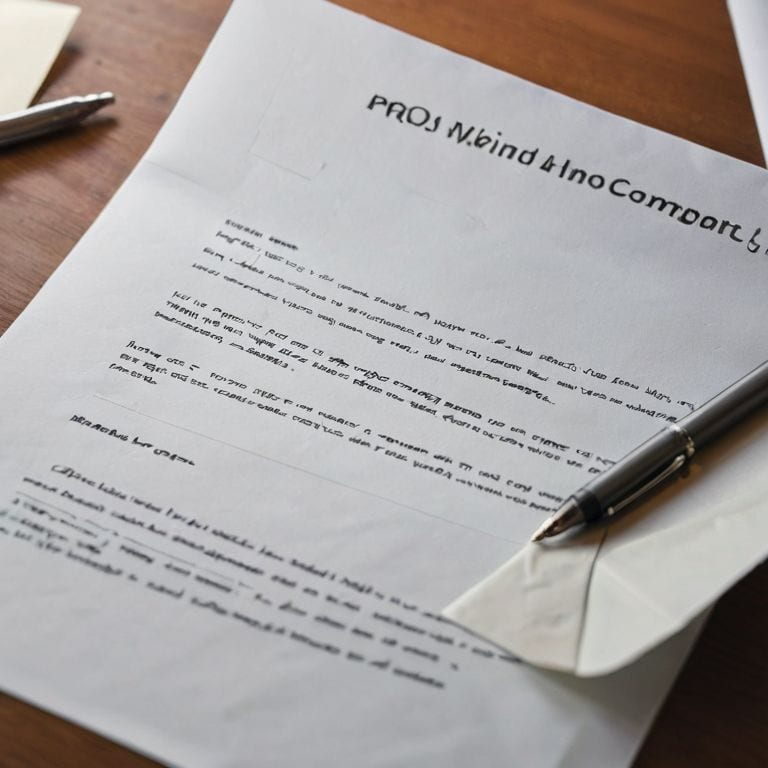I still remember the countless interviews I conducted as a corporate recruiter, where candidates would fumble over the question, “What is your greatest weakness?” It’s a query that’s often met with anxiety, but the truth is, mastering the art of self-awareness is key to acing this question. When it comes to how to answer “what is your greatest weakness,” many of us have been misled to believe that we need to spin a weakness into a strength or, worse, lie about having any flaws at all. But I’m here to tell you that this approach is not only outdated but also potentially damaging to your credibility.
In this article, I’ll share my insider knowledge on how to answer “what is your greatest weakness” in a way that showcases your genuine self-awareness and growth. You’ll learn how to identify your real weaknesses, craft a response that highlights your proactive approach to improvement, and ultimately, turn this question into an opportunity to demonstrate your value as a candidate. By the end of this guide, you’ll be equipped with the practical advice and strategies you need to confidently tackle this question and take your career to the next level.
Table of Contents
Guide Overview: What You'll Need

Total Time: 30 minutes to 1 hour
Estimated Cost: Free – $0 (since it’s a preparation exercise)
Difficulty Level: Intermediate
Tools Required
- Pen and Paper (for brainstorming and note-taking)
- Computer or Tablet (for research and practice)
Supplies & Materials
- Self-Assessment Guide optional, but recommended for a more thorough evaluation
- Example Answers for reference and inspiration
Step-by-Step Instructions
- 1. First, identify your weakness by taking a close look at your past performance reviews, feedback from colleagues, or areas where you tend to struggle. Be honest with yourself, and remember that this is not about airing your dirty laundry, but about showing that you’re self-aware and proactive.
- 2. Next, frame your weakness as a strength by focusing on what you’re doing to improve it. For example, if you struggle with public speaking, talk about the courses you’re taking or the practice you’re doing to become a more confident speaker. This shows that you’re committed to growth and willing to work on your weaknesses.
- 3. Now, choose a weakness that’s not essential to the job. You don’t want to highlight a weakness that’s a key requirement for the position you’re applying for. Instead, pick something that’s tangential to the role, but still shows that you’re aware of your limitations and are working to improve.
- 4. When answering the question, use the STAR method to structure your response. This means setting the context ( Situation ), describing the task ( Task ), explaining the action you took ( Action ), and highlighting the result ( Result ). This will help you stay focused and ensure that your answer is concise and effective.
- 5. As you answer, emphasize what you’ve learned from your weakness, rather than the weakness itself. Talk about the skills you’ve developed, the strategies you’ve implemented, or the mindset shifts you’ve made as a result of working on your weakness. This shows that you’re focused on solutions, not problems.
- 6. Remember to keep it positive and future-focused. Instead of dwelling on your past mistakes or shortcomings, talk about what you’re doing to improve and how you’re applying those lessons to your current and future work. This will help you come across as confident and proactive.
- 7. Finally, practice your response so that it feels natural and authentic. Don’t try to memorize a script, but rather focus on the key points you want to make and the tone you want to convey. This will help you own the conversation and show the interviewer that you’re a strong, capable candidate.
Cracking the Weakness Code

When it comes to common interview weaknesses, it’s essential to be honest without raising red flags. I’ve seen many candidates sabotage their chances by sharing a weakness that’s directly related to the job requirements. To avoid this, focus on a weakness that’s not essential to the position, and frame it as a self-improvement opportunity. This shows that you’re proactive and committed to growth.
Turning weaknesses into strengths is a delicate art. It requires strategic storytelling and a deep understanding of the company’s needs. For instance, if you’re applying for a leadership role, you might share a weakness related to delegation, but then explain how you’ve been working on overcoming personal weaknesses by taking courses or seeking feedback from colleagues. This demonstrates your ability to learn and adapt.
To make your answer even more convincing, use behavioural interview tips such as the STAR method to structure your response. This will help you provide a clear and concise example of how you’ve worked on improving your weakness. Remember, the goal is to show that you’re turning weaknesses into strengths, not just listing a flaw and expecting the interviewer to sympathize. By doing so, you’ll demonstrate your value as a candidate and increase your chances of landing the job.
Overcoming Common Interview Weaknesses
Now that we’ve cracked the weakness code, let’s tackle some common interview weaknesses head-on. I’ve seen countless candidates struggle to articulate their growth areas, but with the right mindset, you can turn these perceived flaws into strengths. For instance, if you’re prone to perfectionism, you can spin it as a dedication to quality and a willingness to go the extra mile.
To overcome common interview weaknesses, focus on the skills you’re developing to address them. If you’re asked about public speaking, don’t apologize for being nervous – highlight the courses or training you’re taking to improve your presentation skills. By framing your weaknesses as opportunities for growth, you’ll demonstrate self-awareness and a proactive approach to professional development.
Turning Flaws Into Hiring Strengths
Now that you’ve cracked the weakness code, it’s time to spin those flaws into gold. I’ve seen countless candidates accidentally highlight their weaknesses as major red flags, when in reality, they could be showcasing their self-awareness and proactive approach to improvement. The key is to frame your weaknesses as opportunities for growth, and to demonstrate the concrete steps you’re taking to overcome them.
By doing so, you’ll not only show that you’re aware of your flaws, but also that you’re actively working to improve them. This mindset shift can be a total game-changer in an interview, turning a potential liability into a major strength. I’ve witnessed it firsthand – a candidate who can confidently discuss their weaknesses and the actions they’re taking to address them is a candidate who exudes confidence, self-awareness, and a growth mindset.
Spinning Your Weaknesses into Gold: 5 Essential Tips
- Be honest, but not too honest – find a weakness that you’ve actively worked to improve, so you can showcase your self-awareness and growth
- Frame your weakness as a strength in disguise – explain how what might seem like a flaw is actually a beneficial trait in your work or industry
- Use the STAR method to tell a story about overcoming your weakness – describe a Situation, Task, Action, and Result that demonstrates your ability to learn and adapt
- Keep it relevant to the job description – choose a weakness that’s related to the position you’re applying for, so you can show that you’re aware of the skills and qualities required
- Practice your delivery to sound confident and sincere – rehearse your answer so that you can discuss your weakness in a way that feels natural and authentic, without sounding like you’re reciting a script
Key Takeaways to Ace the 'Greatest Weakness' Question
Frame your weakness as a strength by showcasing what you’re doing to improve it, rather than just listing a flaw
Be honest but strategic: choose a weakness that you’re actively working on and can demonstrate progress, making you a more attractive candidate
Remember, the goal is to demonstrate self-awareness and a growth mindset, so focus on the actions you’re taking to overcome your weakness, not just the weakness itself
The Art of Vulnerability
Your greatest weakness is not a liability, but a launching pad for showcasing your self-awareness, proactivity, and dedication to growth – own it, and you’ll own the interview.
Morgan Wells
Sealing the Deal: Mastering the Weakness Question

As we’ve navigated the ins and outs of answering the dreaded ‘what is your greatest weakness’ question, it’s clear that honest self-reflection and a strategic mindset are key. We’ve cracked the weakness code by turning flaws into hiring strengths and overcoming common interview weaknesses. By doing so, you’ve not only shown that you’re self-aware but also that you’re proactive and committed to growth. Remember, the goal is to showcase your ability to learn from mistakes and demonstrate a growth mindset. This approach will help you stand out from the crowd and increase your chances of landing your dream job.
Now that you’re equipped with the tools and techniques to tackle this question with confidence, it’s time to put them into practice. As you prepare for your next interview, keep in mind that playing the game is not about being perfect; it’s about being authentic and strategic. Believe in yourself, your abilities, and the value you bring to the table. With persistence and the right mindset, you’ll be unstoppable. Go out there and own your strengths, and don’t be afraid to show your weaknesses – they might just become your greatest assets.
Frequently Asked Questions
What if my greatest weakness is a fundamental aspect of the job, how can I spin it to still appear qualified?
Don’t panic, it’s not a deal-breaker. Frame it as a ‘growth area’ you’re actively working on, and highlight any efforts you’ve made to improve. Show that you’re proactive and committed to developing the necessary skills, and emphasize the strengths you do bring to the table.
Can I use a weakness that I've completely overcome in the past, or should it be something I'm currently working on?
Honesty is key here. While it’s tempting to use a past weakness, it’s more impressive to show you’re actively working on self-improvement. Choose a current weakness and spin it into a strength by highlighting what you’re doing to overcome it. This shows recruiters you’re proactive and committed to growth.
How honest should I be when answering this question, or is it better to slightly fabricate a weakness to appear more relatable?
Honesty is key, but tactfully framing your weakness is crucial. Don’t fabricate, but rather, spin your weakness into a strength by showcasing what you’re doing to improve it. Think of it as a ‘work in progress’ story, where you’re the hero overcoming challenges.














